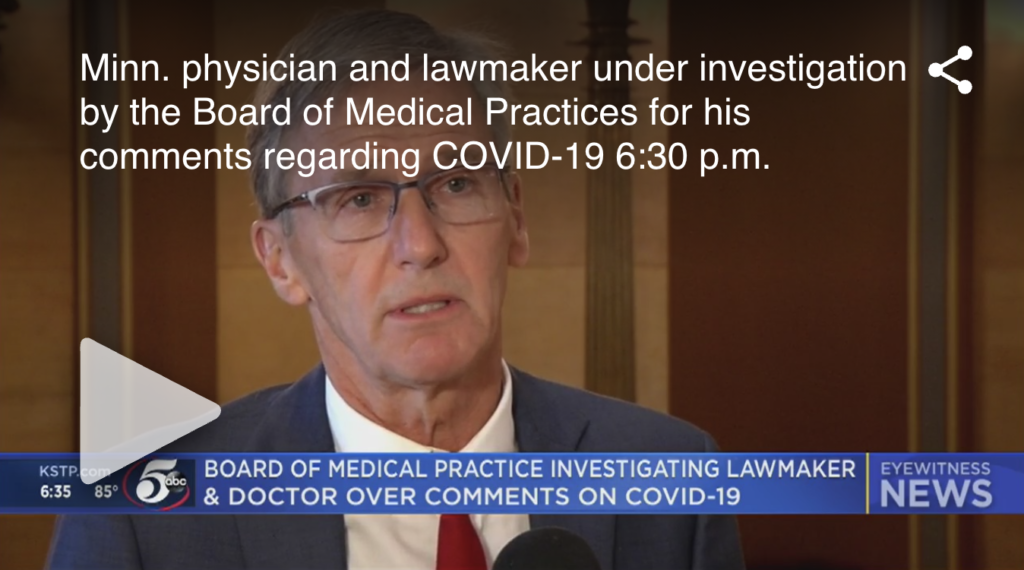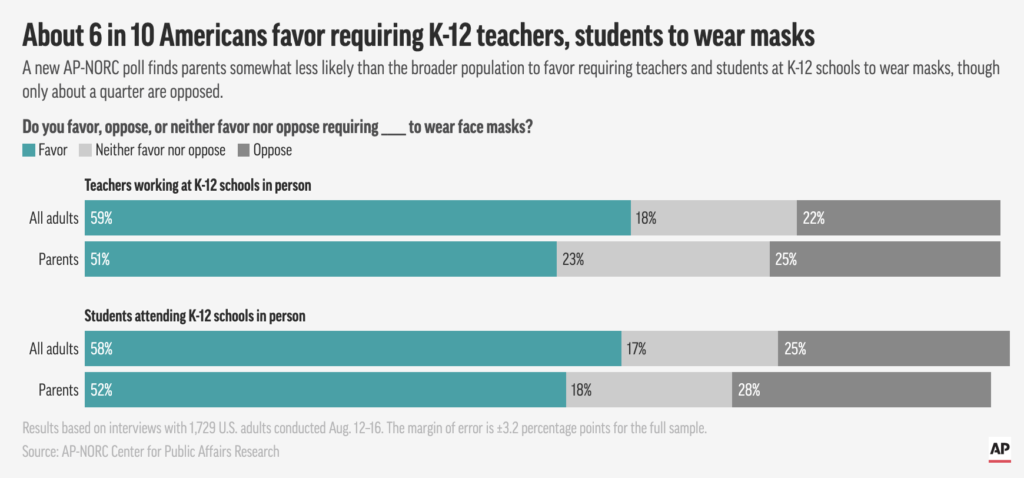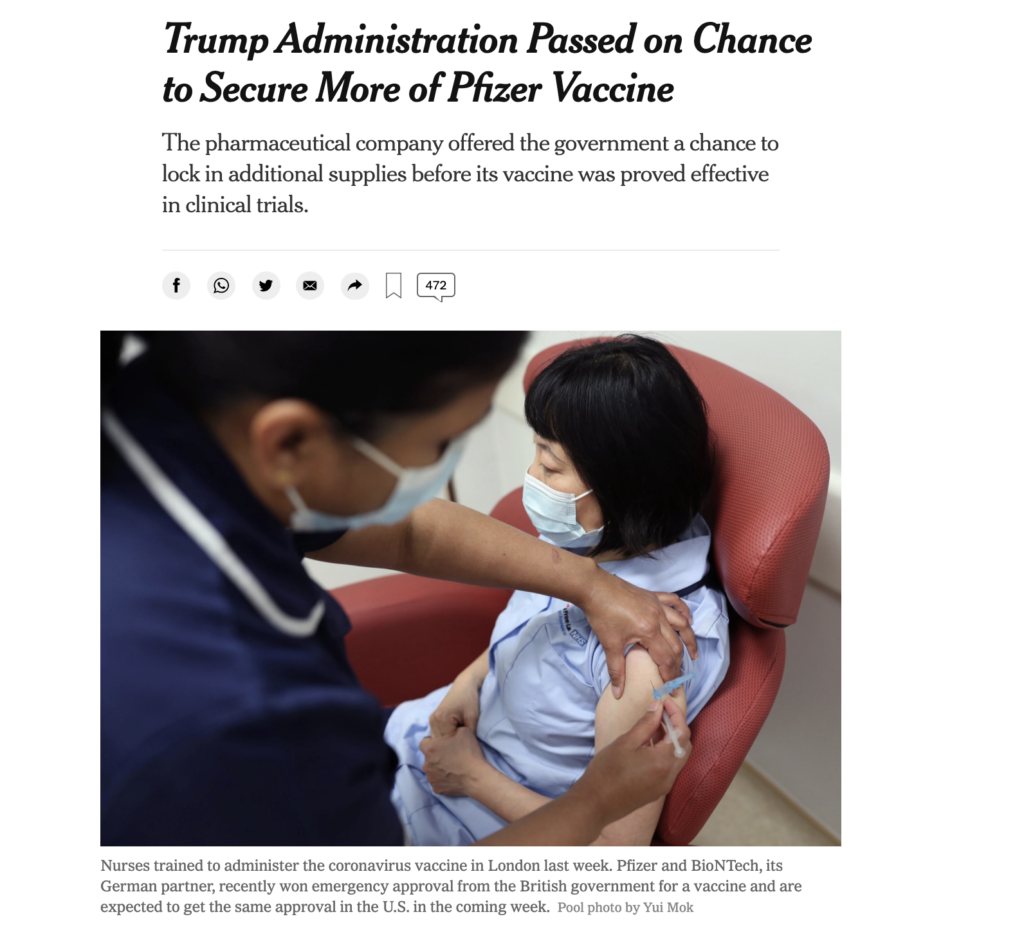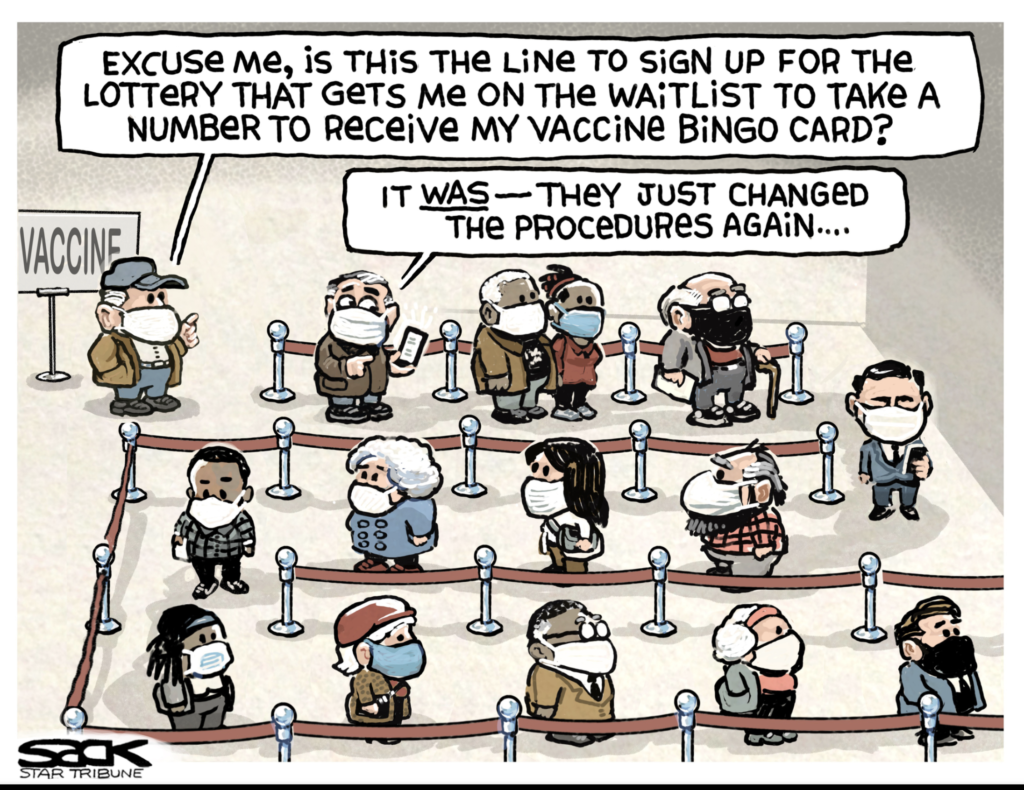Minnesota Republicans are falling all over themselves to the appeal to non-maskers and non-vaxers who they apparently believe, probably correctly, will make up a majority of Republican caucus participants in the 2022 election cycle. They’re obsessed with the people in their partisan echo chambers.
Take Republican gubernatorial candidate Scott Jensen, MD, who made his name in conservative politics by questioning how serious a threat COVID was and suing to keep life-saving vaccines away from young people. Jensen is calling for businesses and citizens to engage in “civil disobedience” by ignoring experts’ vaccine and mask recommendations and requirements.
The physician turned politician who is under investigation by the Minnesota Board of Medical Practice for spreading misinformation about COVID19, also wants to pass legislation to make Minnesota something called a “health freedom sanctuary state.” Dr. J was light on details about what this would mean for Minnesotans, but presumably it would ensure we all have the sacred right to infect and kill others.

Jensen is hardly alone. Throughout the pandemic, Minnesota Republicans at the state and local level have continually questioned the need for measures to protect Minnesotans against COVID. They have advocated freedom-to-infect positions similar to those used by neighboring deep red state South Dakota, which has by far the worst per capita COVID death rate in the midwest region (236 COVID deaths per 100,000 residents). Meanwhile, Governor Tim Walz’s Minnesota has one of the best in the region (142 COVID deaths per 100,000 residents).
Being opposed to masking and vaccinating is another issue that looks to be a savvy political move for Republicans during party caucuses and primaries, but potentially disastrous when it comes time to win a plurality in general elections, where Democratic and independent voters get their say.
After all, about 75 percent of Minnesotans over age 12 now have at least one dose of vaccine, and that number will be higher by election day. And national polls show large majorities of Americans back extremely tough restrictions.
- 64 percent support state and local governments requiring masks to be worn in all public places.
- 59 percent support requiring teachers to wear masks in schools.
- 58 percent support requiring students to wear masks in schools.
- 57 percent support limiting travel on airplanes to vaccinated people.
- 51 percent support limiting attendance to bars and restaurants to vaccinated people.
- 56 percent support limiting crowded gatherings — movies, sporting events, concerts– to vaccinated people.
- 60 percent support requiring vaccines for federal government and large business employees.
At a time when 80 percent of Americans are concerned about the spread of the COVID19 Delta variant, Minnesota Republicans are hell-bent on making opposition to restrictions their centerpiece issue. These surveys show that only about one-quarter to one-third of Americans agree with Republicans, with the remaining respondents unsure.

Oh and by the way, Minnesota’s DFL Governor Tim Walz, the person Republicans portray as being way too radical on COVID restrictions, hasn’t supported anything anywhere near as restrictive as the previously mentioned widely popular measures. Not even close. And since Republicans stripped Walz of his emergency powers in the spring of 2021, he hasn’t been able to do much of anything to protect Minnesotans.
Even if opposing safe and effective COVID protections during the deadliest pandemic in a century were savvy on a political level, it would be morally unconscionable. But it’s every bit as indefensible politically as it is morally.


